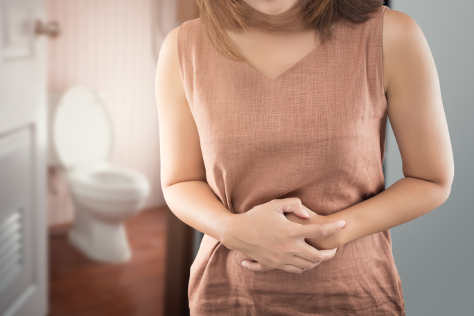Ectopic pregnancy: What you need to know
Our guide to what an ectopic pregnancy is, why it happens, and symptoms to look out for
At a glance
- An ectopic pregnancy occurs when an egg has been fertilized outside of the womb
- They are usually discovered between 5 and 14 weeks into pregnancy
- Speak to your GP straight if show any of the symptoms

What is an ectopic pregnancy?
Although many women have bleeding and cramping in early pregnancy that is entirely normal, in some cases it can be early signs of an ectopic pregnancy – around 1 in every 90 pregnancies is ectopic so it is important to get any spotting or pains checked out as soon as possible.
An ectopic pregnancy occurs when an egg has been fertilized outside of the womb, most often in the fallopian tubes. If this happens, the pregnancy will often naturally end, but if left untreated or undiagnosed, it can be very serious.
Why do ectopic pregnancies happen?
Ectopic pregnancies happen when a fertilised egg implants itself in either the fallopian tube, the ovary, the cervix or in the abdominal space.
In around a third of all ectopic pregnancies there are no obvious causes. However, known factors which increase the chances of having an ectopic pregnancy are:
- Smoking
- Pelvic inflammatory disease, typically caused by chlamydia
- Previous history of ectopic pregnancies
- Are using a contraceptive coil or taking the progesterone only pill
- Your fallopian tubes are damaged from previous surgery
- You have conceived by IVF
- You are over 40
How are ectopic pregnancies diagnosed?
Ectopic pregnancies are usually discovered anywhere between five and 14 weeks into pregnancy, and sadly, around 11,000 woman a year have one. If left untreated, ectopic pregnancies can rupture, causing the fallopian tube to split, and the possibility of severe internal bleeding. The earlier they are detected, the less likely they are to cause long term damage. If your doctors think your pregnancy might be ectopic, they may take blood tests along with carrying out a vaginal ultrasound scan. In some cases they might do a laparoscopy under general anaesthetic to examine your womb and fallopian tubes.
Signs a pregnancy could be ectopic
If you are pregnant, or think you could be, and you are showing any of the symptoms below, you should seek immediate medical advice:
- Vaginal bleeding
- Abdominal pain, especially if it is just on one side
- Pain in your shoulder
- A fever
- Diarrhoea and vomiting
- Bowel pain
- Sudden severe pain spreading across the tummy
- Fainting, dizziness and paleness
These signs and symptoms usually become apparent between five and 14 weeks into the pregnancy.
Of course, these symptoms could also be down to something totally innocent, but because of the potential seriousness of an untreated ectopic pregnancy, it is very important to see your doctor as soon as possible.
Your doctor will confirm whether you are or aren’t suffering from an ectopic pregnancy by doing a urine test, a vaginal ultrasound or a blood test.
Treatment for ectopic pregnancy
If an ectopic pregnancy is detected at an early stage then a medication called methrotrexate is sometimes required to stop the egg from developing. Following this medication the pregnancy tissue is absorbed by the body. However methotrexate is not always required as the pregnancy naturally ends in around 50% of cases before it can grow.
If an ectopic pregnancy is detected later there is a risk that the fertilised egg could grow larger and cause damage to the fallopian tube, leading to internal bleeding.
Getting pregnant after an ectopic pregnancy
An ectopic pregnancy does not mean you will not be able to have a viable pregnancy in the future – it is thought 65% of women have a successful pregnancy around 18 months after an ectopic pregnancy.
If and when you’re ready to try for another pregnancy your doctor can advise you on when it is safe to do so, but usually it’s advised that you wait for at least two full menstrual cycles before trying to get pregnant. If you were treated with methotrexate it is recommended to wait three cycles.
If you are not able to conceive naturally after an ectopic pregnancy then fertility treatment such as IVF, where the fertilised embryo is implanted directly into the womb, may still be an option.
Support after an ectopic pregnancy
If you need support or advice or just someone to talk to after going through an ectopic pregnancy, you could call The Ectopic Pregnancy Trust charity's helpline on 020 7733 2653.